The health of our planet needs our support. Being creative with food waste by reusing, recycling and upcycling is a great first step!
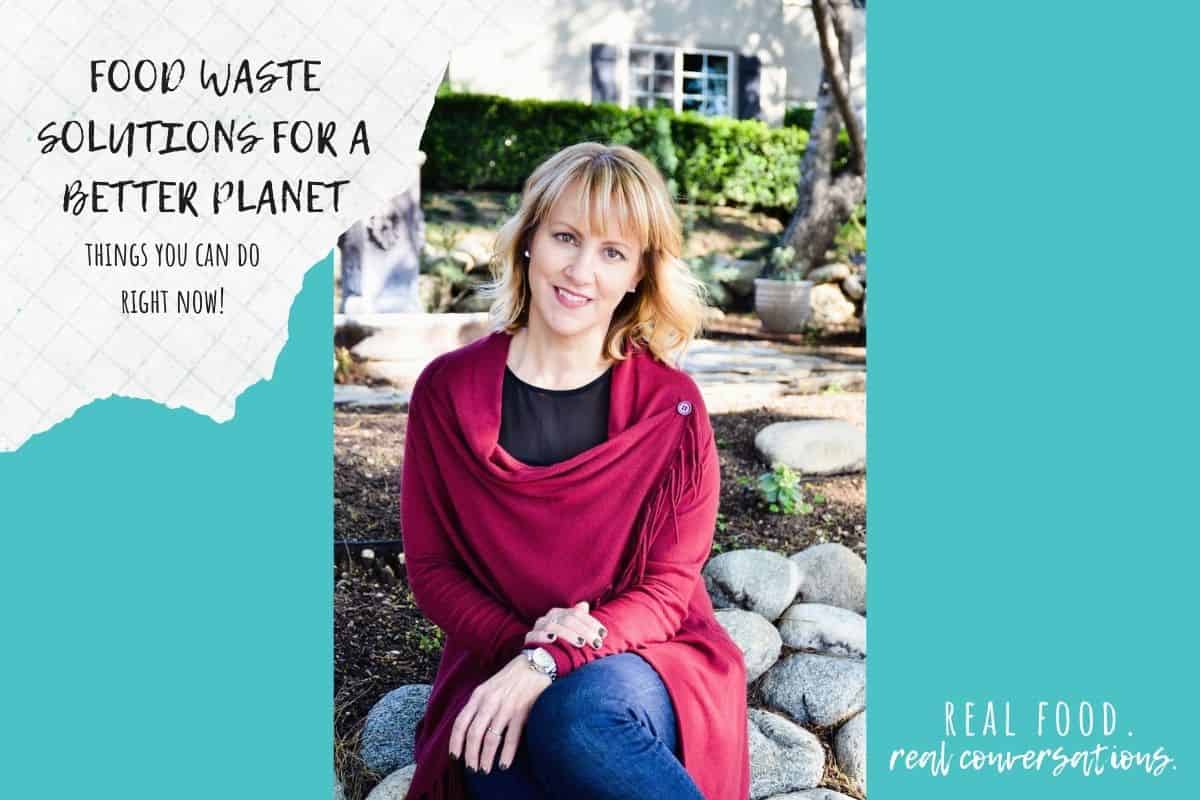
My guest today is a food waste solutions expert! She has all the tricks to help us move closer to saving our planet.
Podcast: Play in new window | Download | Embed Subscribe now! Apple Podcasts | iHeartRadio | TuneIn | Deezer | RSS | More
Known as The Plant-Powered Dietitian, Sharon has established an award-winning career in the field of plant-based nutrition and sustainability. One of the most widely recognized registered dietitians in the world, Sharon is an accomplished writer, editor, blogger, author, speaker, professor, advisor, and media expert.
Sharon has authored over 1000 articles in a variety of publications, including Better Homes and Gardens, Oprah Magazine, and LA Times.
Her latest book, California Vegan: Inspiration and Recipes from the People and Places of the Golden State, was published on March 1, 2021. And she’s currently working on her fourth book on plant-based eating due for publication in 2022.
She serves as the nutrition editor for Today’s Dietitian, associate faculty in the MS of Sustainable Food Systems Program at Prescott College, judge for the James Beard Journalism Awards, nutrition consultant for several organizations such as AICR and Oldways, and co-founder of Food and Planet.
Sharon recently completed her Master of Science in Sustainable Food Systems from Green Mountain College in Vermont. And she still has time to blog every day for her popular online community (400 K members strong and growing) at The Plant-Powered Dietitian.
Living in the sustainability mecca of Ojai, California with her husband and two dogs, Sharon enjoys tending to her own organic garden, visiting the local farmers market, volunteering in local environmental organizations, and cooking for friends and family.
What is Food Waste?
Food waste is when you discard edible nutritious healthy food, basically throwing away food that can be eaten. 40% of our food supply is wasted. That's crazy!
This is not just about food going bad, it's about waste happening on many different levels.
A lot of it is happening at the consumer level, in our household, when we shop at the grocery store and when we eat at restaurants. While it also happens at the grocery level and with the restaurants themselves, a lot is a result of what we do.
All of this food is wasted while 12% of our population has food insecurity, meaning they don't know if they will have food to eat.
Why Food Waste is Happening
There are many reasons why food waste happens in our country, but a large issue is our food is relatively inexpensive compared to other countries.
A study was done on the percentage of income we put towards food and when compared to other nations, it's a lot lower. This info is purely statistical and not related to food insecurity or those that cannot afford food.
Since we put a lot less of our salary towards food, we don't value our food as much. Therefore, wasting it isn't something that we think about as an issue.
Also, we don't use the entire plant when it comes to produce. We tend to throw away a lot, things like carrots tops, peeling veggies and fruit when the peels are edible and stalks of broccoli.
Also, here in the US we are disconnected from our food system. Many people have never been to a farm, so we don't stop to think about all that goes into getting our food.
Another issue is our perfection principal. If produce isn't perfect, it isn't good enough to buy or sell. From blemishes to off shapes, we tend to buy the produce that does not have these issues. And grocery stores only display those that are perfect as well.
We also don't understand the expiration dates on packages. What are actually best buy dates, we take as an expiration. But in fact, many things are good well past the best buy date.
Another huge issue in our country is our problem with portion sizes. This is actually factual, if you compare our portion sizes to other countries you can see a large difference.
From servings at restaurants, to the sizes of packages, big portions are everywhere. So we tend to discard the parts that aren't eaten (or over eat which is a whole other discussion!).
Tips on How to Reduce Food Waste
Doing your part in reducing food waste is easy! Any small change you can make will collectively have a positive impact in the food waste issue!
- Don't overbuy, only get what you need. Having a plan for the week with a shopping list helps a ton! This also will save money.
- Organize your fridge and pantry by putting things you need to use first in front, then the others in back. If we see it we won't forget about it.
- Plan accordingly, do inventory and keep a list of things you need.
- Do some "clean out the pantry" meals to use up stuff that may be expiring or going bad.
- Make some "smorgasboard meals" where you pull all leftovers out of the fridge and collectively make that your meal.
- When you go out, split dishes so you don't have leftovers. You can also take leftovers home and add to them to make a whole other meal, or even give the leftovers box to any homeless people you see on the way home. I have done this and it is an awesome feeling when you see how happy they are!
- A lot of our food waste is on produce. Use storage bags or the storage bins in the fridge to keep it lasting longer. Cook with things that will go bad first, cut and freeze things raw or roast them and freeze for later use.
- Compost if you can. Use this as a last scenario for things you can't use.
Upcycling food
Upcycling is using parts of the food you would usually throw away. It's fun to get creative with parts of fruits and veggies you wouldn't usually eat, or byproducts of other things you make.
Here are some ideas:
- Use veggie scraps to make broth.
- Use the produce in smoothies.
- You can use things like carrot tops to make pesto.
- Using the spines of kale for making crunchy toppings for salads and bowls (simply cook them like you would kale chips to get them super crunchy)
- Some chefs are making vegetable dusts from veggie parts cooked at high heat and using them as toppings for other meals.
- Us the pulp from nut milk or juicing to make muffins and oatmeal.
- Use day old bread for other recipes, things like croutons, ribollita soup, bread pudding, stuffing and panzanilla salad all use it!
Reuse and Repurpose Leftovers
You can also use leftovers to make all new things instead of just eating them as the same meal. Here are a few ideas:
- Puree leftover roasted veggies and put them into burgers, taquitos, or blend them into marinara.
- Use veggies or beans to make grain bowls.
- Use leftover veggies in sandwiches or paninis.
- Make pizzas topped with them, we call them kitchen sink pizzas!
- Puree veggies with beans for a smooth puréed soup.
- Blend leftover whole beans to make a bean dip or burrito filling.
Don't forget to check out Sharon's new book California Vegan: Inspiration and Recipes from the People and Places of the Golden State!

PS- If you liked this episode of Real Food Real Conversations, please subscribe and leave me a review!
And tag me on Instagram whenever you're listening! I reply to all my messages!


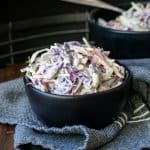
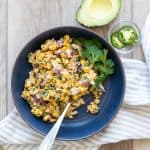

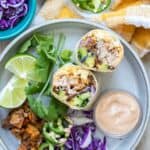
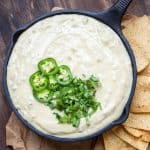
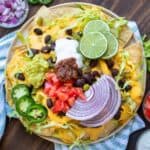
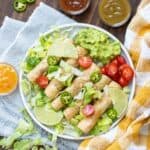
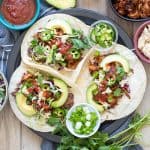
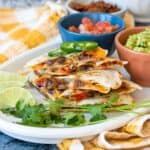
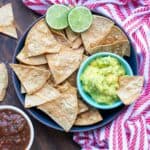
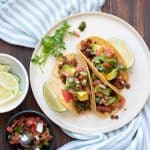

Parinitha Bhargav
It is alarming to understand that 40% of our food is being wasted. Thank you for the information shared.
veggiesdontbite
Isn't it?! Crazy!